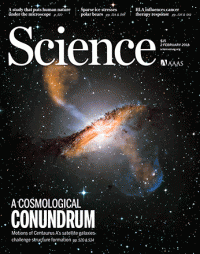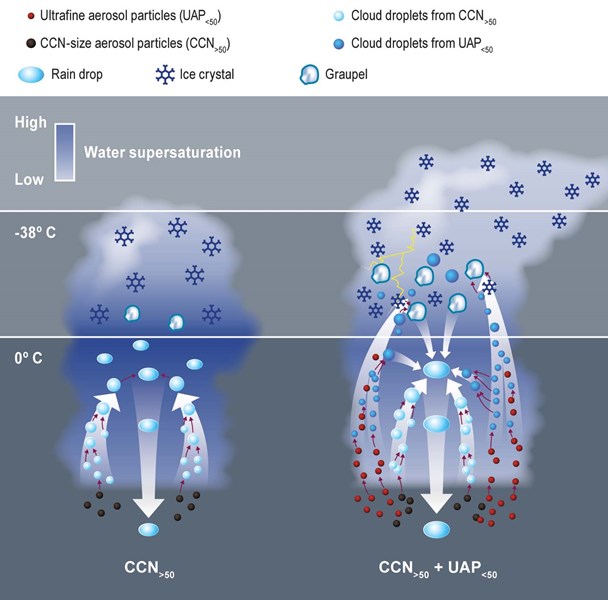Ultrafine Aerosol Impact on Climate

Science 26 Jan 2018
© Science
CICS Scientist Zhanqing Li and his graduate student Yuwei Zhang are co-authors of a new article in Science. Their article, “Substantial convection and precipitation enhancements by ultrafine aerosol particles,” appeared in the January 26th issue. They looked at the climate impact of ultrafine particles, defined as particles of 50 nanometers or less. These vanishingly small particles were thought to have a very limited climate effects but this study found that they can intensify storms, increase the size of clouds and cause more rain to fall when specific conditions are present.
The figure below illustrates the effect of ultrafine particles(red balls) in tropical convective clouds. The particles offer more sites for water condensation and delay the start of precipitation. The release of heat from the increased condensation intensives the convection, ultimately leading to a bigger storm with more hail and lightning.

Fan, Jiwen, Daniel Rosenfeld, Yuwei Zhang, Scott Giangrande, Zhanqing Li, Luiz Machado, Scot Martin, Yan Yang, Jian Wang, Paulo Artaxo, Henrique Barbosa, Ramon Braga, Jennifer Comstock, Zhe Feng, Wenhua Gao, Helber Gomes, Fan Mei, Christopher Pöhlker, Mira L. Pöhlker, Ulrich Pöschl, and Rodrigo de Souza, 2018: Substantial convection and precipitation enhancements by ultrafine aerosol particles, Science, 359, 411–418, http://dx.doi.org/10.1126/science.aan8461. A UMD press release on the article is at https://cmns.umd.edu/news-events/features/4077 . Dr. Li's CICS-MD task is "Retrieving Cloud Base Height and Updraft Speed for Shallow Convective Clouds and Boundary-Layer Moisture from VIIRS for Improving the NCEP GFS."
« Back